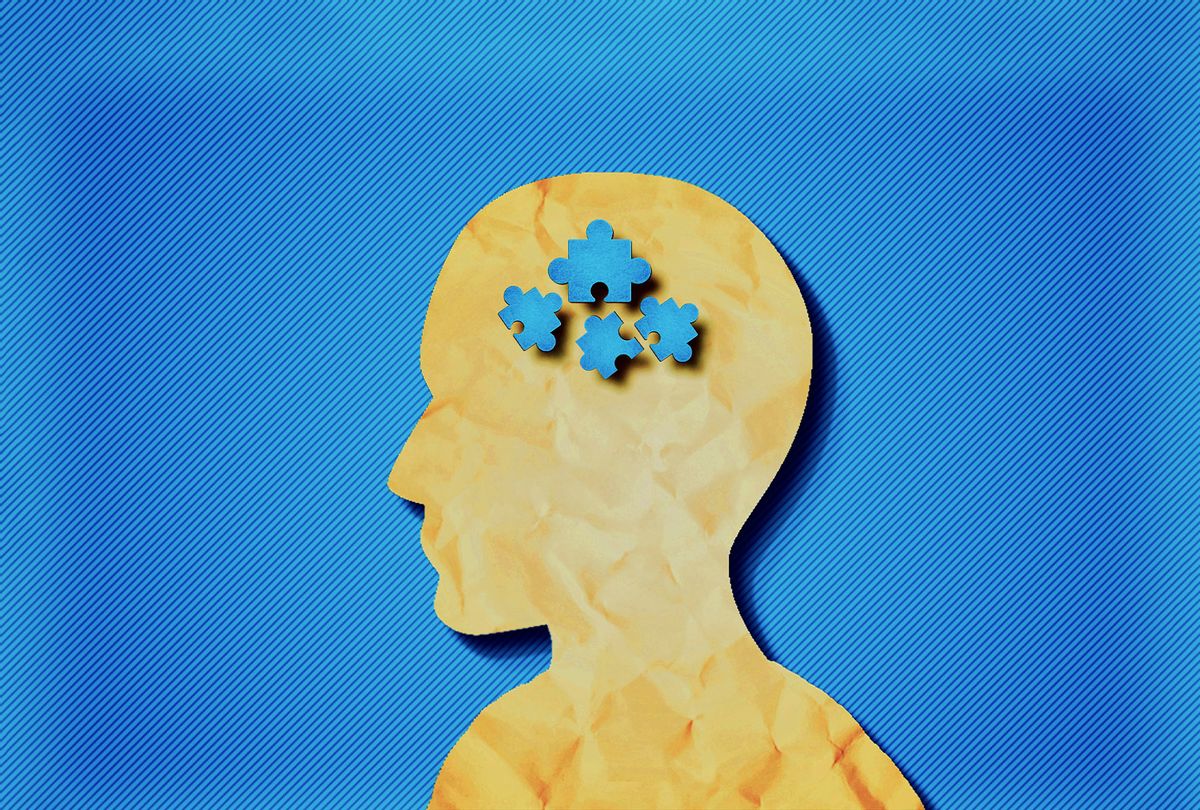Just as the crisis precipitated by the COVID-19 pandemic started to slow down, another one surfaced in the news of Russian President Vladimir Putin's violent invasion of Ukraine.
Since the attack started on February 24, 2022, the world has been gripped with the specter of war, especially after Putin nodded to his country's nuclear capabilities. On top of millions of Ukrainians losing their homes, loved ones and lives, the invasion arrives at a time as the world winds down from a two-year roller coaster ride of the pandemic, where there is still much unprocessed grief and loss.
While the instinct to want to constantly keep abreast of everything happening is natural, "doomscrolling" — meaning the habit of reading negative news stories and social media posts ad infinitum — can trigger and/or worsen depression, panic, stress and anxiety. Mental health experts tell Salon the instinct to keep tabs on what's happening is instinctive, but not always great for one's mental health.
"When news is heavy and world events are scary, one of our first instincts is to become hypervigilant and watch everything as closely as we can, reading and watching as much as we can," said California-based therapist Nick Bognar. "It's generally not a healthy instinct," Bognar noted, explaining that this behavior can create an illusion of control. In other words, the brain believes that as long as we are watching this new news closely, there won't be any surprises.
Of course that's not true at all: just about everything that is happening is out of our control — which is what scares us and makes us feel unsafe.
"In situations like the war in Ukraine, each of us has much less agency than we do in our personal lives," Bognar said. "Therefore, I recommend that people who want to stay up on the news ration it carefully and make sure that they don't over-consume."
Want more health and science stories in your inbox? Subscribe to Salon's weekly newsletter The Vulgar Scientist.
Bognar said one way to combat this is to give yourself a time limit — say, an hour — before quitting and then finding more productive ways to spend one's time.
"Within that time period, you should be able to get most everything you need," Bognar said. "Beyond that, I recommend that people focus their energies and efforts to places where they can make a difference."
Even before the Russia-Ukraine war, helping others is known to be a good salve for anxiety and depression, and comes with its own host of health benefits.
"People who are fighting and suffering in this war need help and assistance, and volunteering for or donating to a charity that aids those people is a very worthy use of one's time, and can be done without having to watch several hours of scary television," Bognar said.
Psychologist Dr. Carla Manly, author of "Joy from Fear," agreed.
"When sad, angry, or unsettled feelings arise due to the Ukraine-Russia war, one of the most positive things you can do is to take action to support those in need," Manly said. "Whether you donate funds or find a creative way to support those in need, your worries and fears will transform into hope when you offer support in meaningful ways."
RELATED: Pediatricians say children's mental health crisis is "a national emergency"
Manly tells Salon that what's happening in Ukraine can be especially distressing as a reminder of the fragile state of the world. Indeed, when countries are at war with each other — even if it's not the country we live in — the very reality of war can stimulate "a strong fear that war could come to our own country."
"The Ukraine-Russia war also makes us realize that we are unable to control much of what happens in the world; this leads to feelings of helplessness, anxiety, and depression," Manly said. "Although news of the Ukraine-Russia war is upsetting for all of us, those who are prone to anxiety (whether as a result of PTSD, generalized anxiety disorder, or other mental health issue), tend to be far more sensitive to negative news and other challenging stimuli."
Doomscrolling, Manly said, can trigger a flight or fight response in people who tend to be more stressed and anxious.
"When the nervous system is activated in this way, additional complications can arise including sleep difficulties, panic attacks, irritability, and lack of focus," Manly said. "Our interpersonal relationships can also be negatively affected due to increased stress and anxiety."
Manly also advised to restrict one's doomscrolling.
"Although it's important to stay abreast of the news, it's just as important to set healthy boundaries with news and social media consumption," Manly said. "As a part of healthy self-care, it's especially critical to avoid the urge to become immersed in overly dramatic news or doomscrolling."
Dr. Sanam Hafeez, a New York City-based neuropsychologist and director of Comprehend the Mind, told Salon it's important to stay out of "what-if" mode—which can lead to catastrophic thinking, and to try to avoid "doomsday" conversations with "doomsday friends."
"You don't need their anxiety and fear to rub off on you," Hafeez said. "If need be, stay busier than usual. Worry and anxiety feed on inactivity."
Hafeez added: "Everyone is still reeling from the COVID-19 pandemic, and this is another massive event to take in; if you feel you can't cope alone, seek the help of a licensed mental health counselor."
Read more on the situation in Ukraine:



Shares